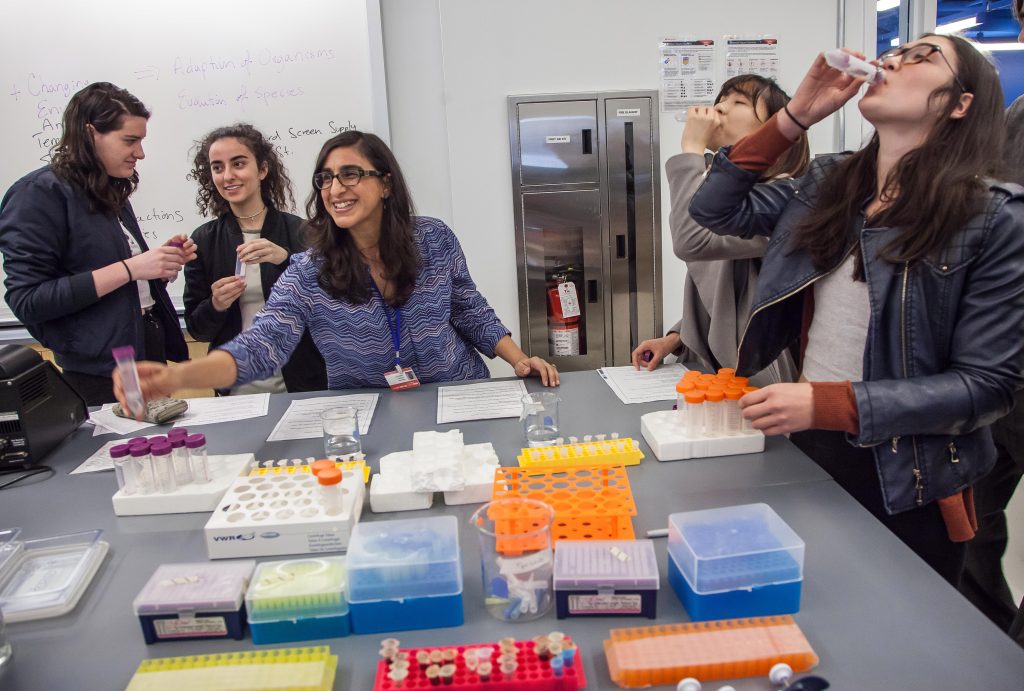
Eugene Lang College Is Creating Socially Engaged Scientists
In Biodiversity Achieved Lab, the subject of DNA analysis was combined with history in a discussion of how children torn from their families during Argentina’s Dirty War were reunited with their parents through the use of DNA sequencing techniques. In Genes, Environment, and Behavior, a lesson on the double helix turned into a feminism-driven discussion of the scientific contributions of Rosalind Franklin. And in Stem Cells and Social Justice, a simulated role-play challenged students to research how a lawmaker might vote on federally funded stem cell research.
These classes reflect an approach to scientific learning — one that blends traditional science and math classes with the humanities and social sciences and an engagement with real-world issues — that is unique to the Natural Sciences and Mathematics department at Eugene Lang College.
The department will expand on its mission after receiving a $2.5 million donation from the parents of Larkin Mohn, Interdisciplinary Science ’14, in recognition of the transformative education she received at Lang. The donation will create the college’s first-ever endowed professorship, a position to be filled by Katayoun Chamany, associate professor of biology and chair of Natural Sciences and Mathematics. The donation will both help Chamany create new learning opportunities for students and financially support students who take on unpaid internships and research positions.
“With the endowed professorship, I’ll be helping to lead curricular innovation,” she says. “Math and science are tools for democracy, and I want to connect them to the humanities. There is a lot of room for growth in that area.”
In accordance with The New School’s educational approach, students in Natural Sciences and Mathematics learn to use scientific knowledge to address pressing issues such as clean water access, climate change, emerging biotechnologies, and other concerns involving health, the environment, education, ethics, and policy.
“Students have to know the biology in order to understand the ethics, because you can’t take the biology out of ethics, and vice versa,” says Chamany.
For students, viewing science through a critical lens makes classes in the natural sciences and mathematics engaging, even if many of them had no interest in science or math before starting at Lang.
“I came to Lang to be a writer; then I was placed in the Biology, Art, and Social Justice first-year seminar with Katayoun,” Marina Delgado, Interdisciplinary Science ’17, recalls. “I had never been encouraged to approach science the way Katayoun does, with such a foundation in art and social justice. The dedicated faculty, as well as the interdisciplinary nature of the program, inspired me to choose the major and continue with it.”
Chamany, who is also an affiliated faculty member of the Tishman Environment and Design Center, hopes to foster new types of scientists at The New School and create an academic model that might inspire other institutions and programs to do the same.
For Delgado, the integration of social justice into the curriculum has been eye opening.
“Learning about science with a built-in foundation of social justice makes it so engaging and significant and has given it purpose for me,” says Delgado. “I don’t know exactly what my future plans in the scientific community are, but I do know that they absolutely center around practicing science in a social justice framework.”